The 2025 Knowledge Co-Creation Programme (KCCP 2025): Igniting Africa’s STEM Revolution!
By Chipo Sakala,
Senior Education Officer – Programmes & Coordination- Directorate of National Science Centre
“Education begins and ends when one lives the experience.” – Prof. Benson Banda, Director of NSC
🌟 A Bold New Chapter for African Education
The Knowledge Co-Creation Programme (KCCP 2025) set Lusaka alight as a continental hub of innovation. Hosted at the National Science Centre (NSC) in partnership with JICA, this transformative initiative reimagined education through bold project-based learning and African-led solutions, ushering in a new era of competence-driven teaching.
🎨 Pan‑African Participation at a Glance
KCCP 2025 brought together 133 participants from 18 African countries namely; Angola, Botswana, Cameroon, Ethiopia, Ghana, Kenya, Lesotho, Malawi, Madagascar, Mozambique, Namibia, Nigeria, Senegal, Sierra Leone, South Sudan, Uganda, Zambia, and Zimbabwe. The participants across the cohorts comprised teachers, college lecturers, curriculum specialists, National trainers’ standards officers, and directors amongst others.
🎨 Cohort‑Based Approach
- Cohorts 1 & 2 focused on Early Childhood Education (ECE) & Lower Primary. The course was divided into 336 contact hours in which objectives encompassed understanding & identifying foundational educational learning environments, designing & constructing these learning environments as well as trialing with learners.
• Cohorts 3 & 4 involved Upper Primary & Secondary level focus with 456 contact hours. In these cohorts the participants developed STEM‑focused learning environments.
• Cohort 5 was for Senior Education Officials from the participating countries. These had 60 contact hours. The focus at this level as policy, validation of training outputs and strategic planning.
Participants suggested designs, critiqued the designs and reached a consensus then co‑developed the learning spaces taking into consideration resource‑constrained contexts across the continent.
📊 Programme Highlights
- 133 participants from 18 African countries
- 5 cohorts covering Early Childhood to Senior Education Officials
• Hands-on projects integrating agro-based, hospitality, and STEM innovation
• Measurable growth in STEM skills and competencies
• Strong emphasis on low-cost, local materials and real-world solutions
🎨 Cohorts 1 & 2: Building Creativity Early
Participants designed 13 outdoor stations for sensory, emotional, and psychomotor development. These interactive environments empowered learners to explore freely, proving the unmatched value of experiential learning.
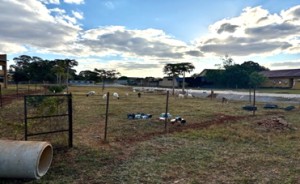
ECE Learning Space Before training
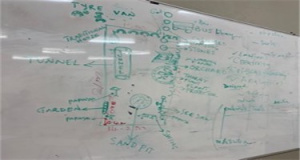
Design of ECE Learning Space
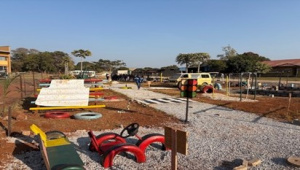
Learning Space After training
The Early Childhood Education (ECE) learning environment plays a pivotal role in laying the foundation for Competence-Based Education (CBE), as it is in these formative years that curiosity, creativity, and foundational skills are nurtured. A well-structured ECE environment goes beyond providing physical spaces. it becomes a dynamic laboratory where children actively explore, question, and make sense of their world through play-based and hands-on experiences,
By integrating sensory, emotional, and psychomotor activities, such environments develop critical pre-literacy and numeracy skills while fostering problem-solving, communication, and collaboration. In the context of CBE, these early experiences are essential because competence is not simply acquired through memorization but through authentic engagement with tasks that mirror real-life challenges. Thus, an intentional, stimulating ECE learning environment ensures that every child begins their educational journey equipped with the confidence, creativity, and foundational competencies needed to thrive in later learning stages.
🔬 Cohorts 3 & 4: Driving Innovation Through STEM
Upper Primary and Secondary teams created agro and hospitality-themed spaces, gaining real-world planning, construction, and problem-solving expertise through interdisciplinary collaboration. The subjects included Agriculture science, Biology, Chemistry, computer science, home economics & Hospitality, Design & Technology, Mathematics and Physics.

Hospitality Learning Space before training


Hospitality Learning Space at the close of the training.

Agriculture Learning Space before training


Agriculture based Learning Space at the close of the training.
The integration of disciplines in teaching and learning is central to Competence-Based Education (CBE), especially for learners in Upper Primary and Secondary levels (Cohorts 3 and 4). By blending science, technology, engineering, mathematics, agriculture, hospitality, and design into interdisciplinary projects, learners develop a holistic understanding of concepts and how they interconnect in solving real-world problems. This approach not only deepens subject mastery but also cultivates critical thinking, creativity, collaboration, and entrepreneurial skills, all of which are core CBE competencies. In KCCP 2025, participants demonstrated this by designing and implementing agro-based and hospitality-themed environments, where mathematics informed engineering designs, science guided soil and crop choices, and ICT tools enabled innovation. Such synergy transforms classrooms into dynamic spaces of exploration, equipping learners with transferable skills and preparing them to thrive in life.
🎙️ Voices of Leadership
Hon. Douglas Syakalima, Zambia Minister of Education and Dr. Kelvin Mambwe, Permanent Secretary Educational Services in the Ministry of Education Zambia, championed Competence Based Education CBE as a game-changer for African education, while senior officers from across the participating countries advocated for a continental summit to expand the KCCP movement.
📸 Stunning Photo Highlights
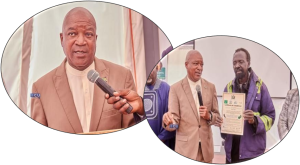
Minister of Education Honurable Douglas Syaklima -MP, adressing participants

Participants conducting school visits in Lusaka

Participants deepening understanding through group work and presentation.
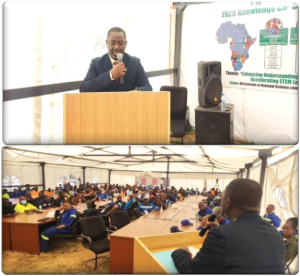
Permanent Secretary-Educational Services Kelvin Mambwe (PhD) addressing the participants

Participants constructing outdoor learning environments at the NSC.

Participants conducting school visits in Lusaka

Receiving feedback from Prof. Benson Banda

Participants Surveying Land

Participants developing fence at hospitality area by recycling waste wood pieces


CAD Drawing of Hospitality learning area

Participants brick work construction of hospitality learning area
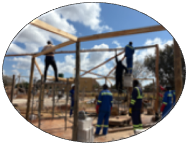
Participants wood works at hospitality learning area

Budding at the agro learning area
Land map for hospitality prepared by participants

Participant showing the Minister grain bag agriculture at the agro-based learning area for land scarce regions
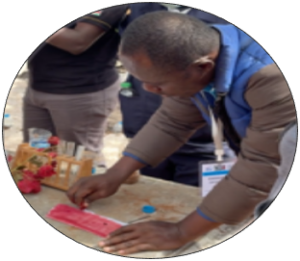
Soil Testing at the agro-based learning area
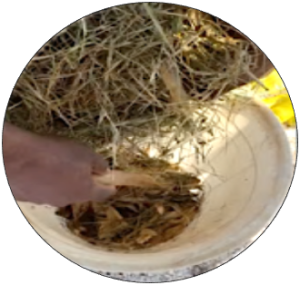
Mulching at the agro-based learning area


Movable or Mobile Garden ideas at the agro-based learning area
Varied irrigation systems at the agro learning area


